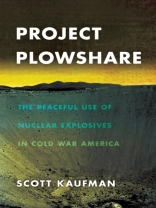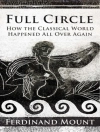Inspired by President Dwight D. Eisenhower’s "Atoms for Peace" speech, scientists at the Atomic Energy Commission and the University of California’s Radiation Laboratory began in 1957 a program they called Plowshare. Joined by like-minded government officials, scientists, and business leaders, champions of "peaceful nuclear explosions" maintained that they could create new elements and isotopes for general use, build storage facilities for water or fuel, mine ores, increase oil and natural gas production, generate heat for power production, and construct roads, harbors, and canals. By harnessing the power of the atom for nonmilitary purposes, Plowshare backers expected to protect American security, defend U.S. legitimacy and prestige, and ensure access to energy resources.Scott Kaufman’s extensive research in nearly two dozen archives in three nations shows how science, politics, and environmentalism converged to shape the lasting conflict over the use of nuclear technology. Indeed, despite technological and strategic promise, Plowshare’s early champions soon found themselves facing a vocal and powerful coalition of federal and state officials, scientists, industrialists, environmentalists, and average citizens. Skeptical politicians, domestic and international pressure to stop nuclear testing, and a lack of government funding severely restricted the program. By the mid-1970s, Plowshare was, in the words of one government official, "dead as a doornail." However, the thought of using the atom for peaceful purposes remains alive.
Scott Kaufman
Project Plowshare [PDF ebook]
The Peaceful Use of Nuclear Explosives in Cold War America
Project Plowshare [PDF ebook]
The Peaceful Use of Nuclear Explosives in Cold War America
购买此电子书可免费获赠一本!
语言 英语 ● 格式 PDF ● 网页 312 ● ISBN 9780801465833 ● 出版者 Cornell University Press ● 发布时间 2012 ● 下载 3 时 ● 货币 EUR ● ID 5207067 ● 复制保护 Adobe DRM
需要具备DRM功能的电子书阅读器












